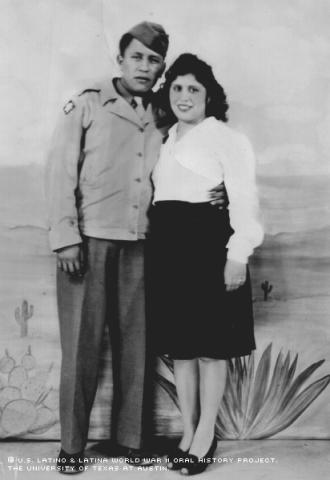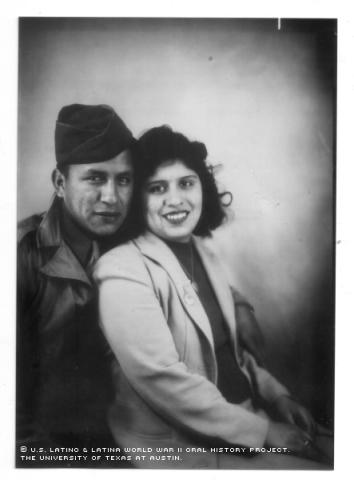

By Nathan Wyman
For Ventura Terrones Campa, the gravity and brutality of World War II often seemed distant to her while living in the Kansas heartland of America. Like many thousands of wives left to raise their children while their husbands were fighting on the battlefields of Europe, North Africa and the South Pacific, Campa's goals were to maintain her household, tend to her daughter and wait to see if her husband, Diego Campa, would be one of the lucky ones who’d come home.
And if worrying about her husband wasn't enough, she says she also fretted about two of her brothers, Eugene and Alfred, who’d also enlisted in the Navy and Army, respectively. She says she fretted as well that the German army might even invade America.
"All I did was worry," Campa said. "I didn't want them to be killed."
In September of 1942, Campa married Diego, who’d been her high school sweetheart in Newton, Kan., a small farming community about 25 miles north of Wichita; however, mere months after tying the knot, Diego was drafted into the Army and headed off to war.
"He told me he wanted someone to come home to," Campa recalled.
Diego actually had two people to come home to, as Campa was pregnant with their first child, Gloria, at the time. He was able to see his daughter right before he was shipped off to Europe, where he experienced considerable action as a combat engineer.
While Diego, Eugene and Alfred were away at war, Campa says life was calm in Newton, a town of 10,000 people at the time. Campa lived with her mother, Clara Terrones, who Campa says tried to comfort her.
Clara had immigrated to Kansas from Guanajuato, Mexico, with her father, Tomas Terrones. Like thousands of other Mexicans, the Terrones fled Mexico during the era of Pancho Villa, who helped spur the revolution there.
Tomas worked for the Santa Fe Railroad Company and also did farm labor; Clara worked as a housekeeper for the local hospital’s doctors.
The Terrones family lived moderately well at the time, says Campa, noting that they even had a Ford Model T.
"We never had food trouble," Campa said. "We always had food even during the Depression. I used to take the wagon down to Dillon's [Grocery] and fill it up with cantaloupes, oranges and apples for 50 cents."
While the war raged, Campa worked in a local egg-packing plant. She spent her workdays either sorting eggs or plucking feathers from dead chickens.
Her goals were to save enough money for a down payment on a house and to set aside enough funds for her children to go to college. Despite the fact that she and Diego ultimately had 10 children, she says she managed to put away a modest sum.
Life in Newton was pretty much business as usual throughout the war, Campa says. She recalls the local theater having segregated seating, with Mexican Americans having to sit in the rear of the theater. One local store allowed nonwhites to purchase items, but they weren’t allowed to take a seat at the counter, she says.
Diego and both of Campa’s brothers returned safely from the war. She says that while Diego insisted the children speak only English, they did pass on many Mexican traditions, including traditional cooking and Christmas rituals. In large part, the war had little impact on how the children were raised, Campa says. One exception: Thanks to the war, they became familiar with rough terrain, as Diego insisted on taking the family on vacations to Colorado because the Rocky Mountains reminded him of the German mountains he saw during his service.
Mrs. Campa was interviewed in Newton, Kansas, on August 1, 2003, by Delia J. Lujan.

